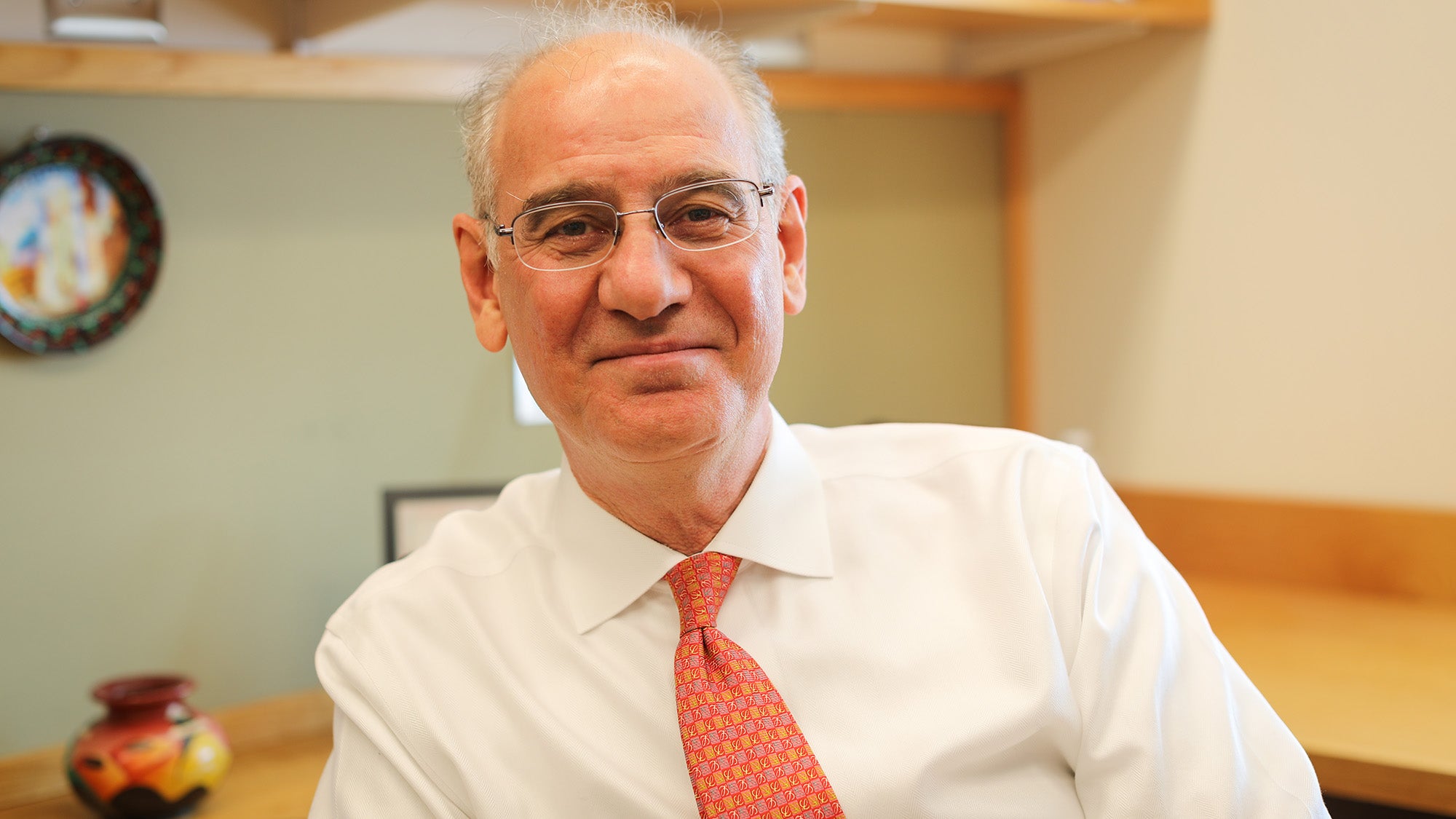Expanding lifelong learning opportunities at Harvard Chan School

Rifat Atun was recently named the vice dean for non-degree education and innovation at Harvard T.H. Chan School of Public Health. He is also professor of global health systems and leads the Health System Innovation Lab. He recently spoke about his plans for expanding lifelong learning opportunities at the School.
Q: What’s your vision for non-degree education at Harvard Chan School?
A: Non-degree education is a great opportunity to provide lifelong learning for our current and future students, alumni, and beyond. These programs allow us to build on our research and teaching excellence in public health and develop offerings for individuals across the spectrum from early career researchers to senior leaders.
Increasing the accessibility of our offerings is very important. We’re currently developing online courses in synchronous [live, instructor-led], asynchronous [self-paced], and hybrid formats that include an on-campus component.
Q: In addition to the School’s traditional Executive and Continuing Education (ECE) courses, what are some other programs that fall under non-degree education?
A: One example is the Global Nursing Leadership Program. This is in the advanced leadership segment of our offerings. We now have two versions of the program—the first offers synchronous online classes with an in-person component, and now we’ve launched a new, shorter, asynchronous version. The National Preparedness Leadership Initiative is another program that falls into the advanced leadership category. Previously NPLI had offered their courses separately, but now we are collaborating—a much welcome development.
Other programs we are working with include the Summer Program in Biostatistics & Computational Biology, which is for early carer researchers and aspiring public health professionals.
Q: What are some new non-degree offerings?
A: We are developing a new set of courses called Frontiers, showcasing research from across the School. We are working with each academic department to develop courses on the fundamentals of their subject area, in addition to courses offering applied learning and greater specialization and the opportunity to earn certification.
Another relatively new offering is the Global Health Leadership Program, a six-month online course launched last year in collaboration with the online education company Emeritus. The course combines self-paced elements with live faculty interactions.
I teach the course with Heather Mattie, John McDonough, Kari Nadeau, and Vish Viswanath. It brings together expertise from across the School on environmental health and epidemiological threats, data science for understanding the nature and magnitude of public health problems, communication to reach stakeholders, and approaches for policy design, implementation, and evaluation in relation to potential solutions.
The course is an opportunity for anyone broadly involved in health to really understand the principles of leading globally in public health. Participants include those with traditional public health backgrounds, but also individuals from the biopharmaceutical, consulting, and health technology industries. It currently has four cohorts running simultaneously and has been very highly rated by participants.
Q: Do you see opportunities for integration between ECE and your work with the Health Systems Innovation Lab?
A: HSIL’s work on health systems performance is already being incorporated into the Global Nursing Leadership Program and the Global Health Leadership Program, for example, through the use of analytical frameworks, research outputs, and the data visualization tools participants use.
In addition to research and teaching, HSIL is also involved in innovation. We run the largest hackathon in the world on AI and health systems. We had our sixth edition in April, which included more than 2,500 individuals competing in-person in 18 countries simultaneously.
We want to continue providing opportunities for students at the School and Harvard in general to develop their ideas through the hackathon and our venture building program. And more broadly, we want to build an innovation culture at the School, thinking about how the research we’re doing can be translated into action to achieve results and a positive impact on population health.
Q: What insights are you bringing to your new role from your previous experiences developing and leading executive education courses?
A: I’ve been in executive education for at least 20 years—at Harvard and previously at Imperial College, London, where I was a professor at the business school. These experiences include developing highly focused custom-design courses for the World Bank, WHO, government entities, and hospitals, health care providers, pharmaceutical companies, consulting firms and other private-sector organizations.
I’ve learned that there is a strong demand for these kinds of custom offerings—and an enthusiasm for the new way of learning they provide. It’s joint learning: working with organizations to jointly explore and identify problems, think through potential solutions, and then maybe even develop pathways for solving them. This means not a one-off but ongoing engagement.
Q: How can non-degree education help the School meet the challenges posed by the federal government’s defunding of scientific research?
A: Sometimes, crises force us to rethink and look for new ways of doing things to achieve our mission. We’re now capitalizing on our research and teaching excellence and using non-degree education to expand offerings for lifelong learning and improve accessibility. This will not only broaden the audience for public health education but also generate revenues that we can use to invest in our research, teaching, and development.

